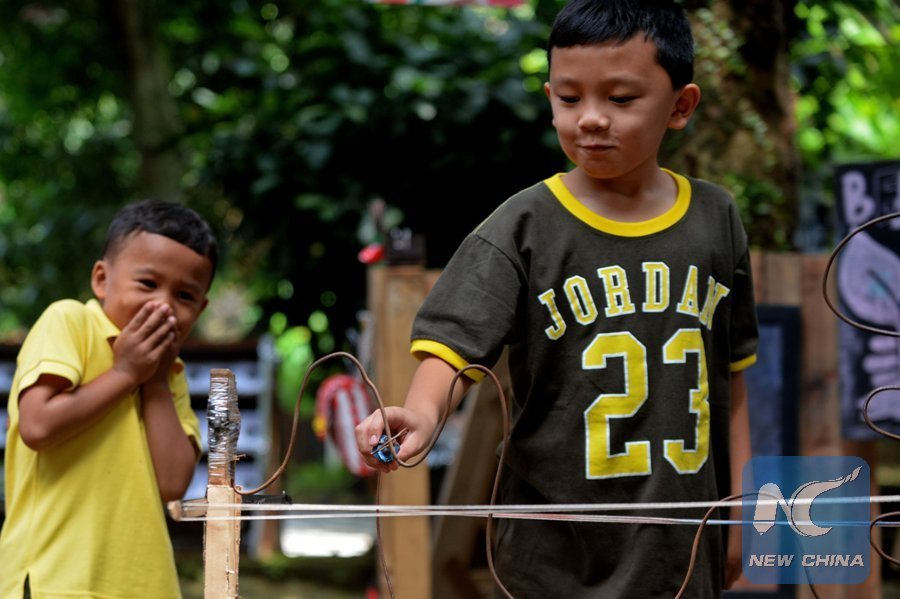
File Photo: A boy plays wire loop games during Outdoor Workshop and Education for Kids at Tanah Tingal ecoforest in South Tangerang, Indonesia, Nov. 18, 2017. (Xinhua/Agung Kuncahya B.)
WASHINGTON, May 10 (Xinhua) -- A study published on Thursday in the Journal of Family Psychology shed light on why childhood friendships tend to fall apart, demonstrating that parents are an important source of those breakups.
Looking at data from 1,523 children, among them 766 boys, from grades one to six, researchers from Florida Atlantic University (FAU) and the University of Jyvaskyla in Finland conducted a survival analysis to identify the characteristics of parents that predict the stability of their children's friendships.
The researchers examined mother and father reports of their own depressive symptoms and parenting styles to predict the occurrence and timing of the dissolution of kids' best friendships from the beginning to the end of elementary school (grades one to six).
The researchers assessed three commonly recognized parenting styles: behavioral control such as curfews and monitoring; psychological control such as shaming and guilt; and warmth and affection.
They also assessed parental depression to disentangle the unique contributions of parenting styles from parent mental health difficulties known to shape parenting.
Lastly, they assessed the children's peer social status or how well-liked they are by other children to separate the effects of parenting from difficulties that children have getting along with peers.
"We already know that peer status plays an important role in friendship outcomes. For example, well-liked children have more long-lasting relationships than do their classmates," said Brett Laursen, a co-author of the study and a professor and graduate studies coordinator in the Department of Psychology in FAU's Charles E. Schmidt College of Science.
Laursen, who collaborated with lead author Daniel J. Dickson and co-author Melissa Huey, both of whom received their doctorates from FAU's Department of Psychology, and their collaborators in Finland wanted to determine if negative parenting characteristics such as manipulative and coercive behaviors disrupt children's friendships.
Results from the study found clear support for their hypothesis that negative features of parenting, such as depression and psychological control, increase the risk that best friendships would end.
According to the study, for children with clinically depressed parents, the risk of best friendship dissolution increased by up to 104 percent.
There was a similar, although not quite as dramatic, increase in the risk of best friendship dissolution for children with psychologically controlling parents.
Parent depression and parent psychological control uniquely predicted subsequent child friendships breaking up, above and beyond contributions of peer difficulties.
A surprising finding from the study that was contrary to the researchers' expectations was that they did not find any evidence that positive parenting behaviors like warmth and affection altered the stability of children's best friendships.
"We were hoping that positive behaviors would help extend the life of friendships and that it would be a buffer or a protective factor," said Laursen. "This wasn't the case. Warmth and affection don't appear to make that much of a difference. It's the negative characteristics of parents that are key in determining if and when these childhood friendships end."
Findings from this study also confirmed that most friendships were transitory. Fewer than 10 percent of first-grade best friendships survived from the first to the sixth grade, with roughly half or 48 percent dissolving within a year of initiation.
"We believe that children with depressed and psychologically controlling parents are not learning healthy strategies for engaging with other people, which could have long-term consequences for their future relationships," said Laursen.

